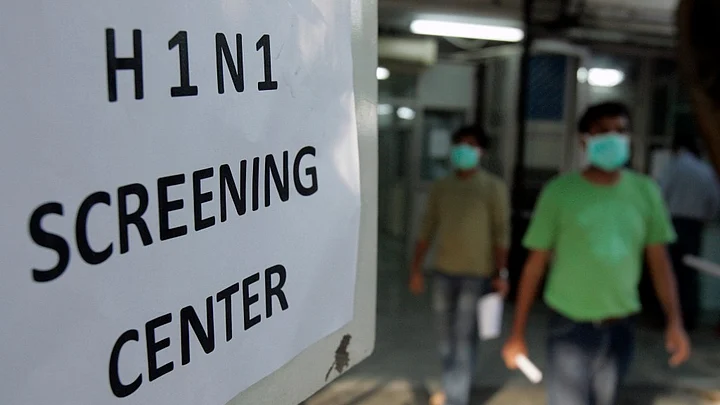The over all death toll due to H1N1, also called the swine flu across the country stands at 169 so far. 4,571 people have tested positive for the virus. Rajasthan accounts for over 40 per cent of the cases, according to reports.
Meanwhile in Delhi, a total of 512 cases of H1N1 have been registered with no deaths reported in the national capital till Tuesday.
The government has directed all its hospital to make local purchases of logistics required to ensure a continuous supply of medicine, vaccine and kits.
"All government hospitals are equipped with the necessary logistics required for the management of Seasonal Influenza (H1N1)," the government said in a statement.
Collection and compilation of confirmed swine flu cases from various reporting units and labs with complete line listing is being done at the state level. The compiled report is shared with districts for timely surveillance activities and preventive measure
The government added that there had been 512 cases in Delhi so far of Seasonal Influenza till January 29.
According to the advisory issued by Delhi's Directorate General of Health Services, Seasonal Influenza (H1N1) is a self-limiting viral, airborne disease spread from person-to-person, through large droplets generated by the act of coughing and sneezing, indirect contact by touching a contaminated object or surface (fomite transmission like telephone, cell phones, computers, door handles, doorbells, pens, toys) and close contact (including handshaking, hugging, kissing).
"The symptoms include fever and cough, sore throat, runny or stuffy nose, difficulty in breathing. Other symptoms may include body aches, headache, fatigue, chills, diarrhea and vomiting and blood-stained sputum," it said.
The advisory also stated that children with mild illness but with predisposing risk factors, pregnant women, persons aged 65 years or older, patients with lung diseases, heart disease, liver disease, kidney disease, blood disorders, diabetes, neurological disorders, cancer and HIV/AIDS, patients on long term cortisone therapy are under the high risk group.
(With inputs from IANS)
(At The Quint, we question everything. Play an active role in shaping our journalism by becoming a member today.)
